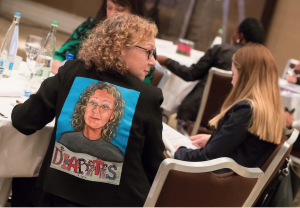Every time you interact with the medical system you’re vulnerable

“In July 2024, a 33-year-old woman with type 1 diabetes was boating on a hot day when her insulin delivery device slipped off. By the time she was able to exit the river, she was clearly ill, and an ambulance was called. The hospital was at capacity. Lying in the hallway, she was treated with fluids but not insulin, despite her boyfriend repeatedly telling the staff she had diabetes. She was released while still vomiting. The next morning, her boyfriend found her dead.”
Above is the opening to an article written by my friend, journalist fellow type 1 and diabetes advocate, Miriam Tucker. It appears in the August 16th edition of Medscape, “What Every Provider Needs to Know About Type 1 Diabetes.” The article goes on to highlight other cases and situations where lack of knowledge about type 1 diabetes can create life-threatening situations.
Recently I’ve had a number of tests to check the health of my heart. I’ve had high LDL the past few years as do my parents and brother. My clean, low carb diet and exercise routine of walking every day 45-60 minutes and two weight training gyms classes a week has little if any impact.
The last procedure I had a week ago was an angiogram. Because I couldn’t eat after 8:30 am, my blood sugar was trending low all day. The procedure that was suppose to happen at 1 didn’t happen until 4 pm. Three times during those hours I’d had to ask for a few sips of juice.
In the room where they do the angiogram, I had to surrender my phone, where I was hawkishly watching my CGM numbers. When the procedure began I was at 69 mg/dl. I let all the medical people around me know and they put the phone where we would be able to hear the alarm. I trusted stress would soon kick in and kick me up.
Like in my last post about advocating for myself, I believe we owe it to ourselves, our fellow type 1s and our health professionals, who in their heart, want to help us, to educate others. Unless a provider specializes in endocrinology, it’s unlikely they will have received much, if any, education about type 1 diabetes.
You can be that education. If you’re comfortable, use your interactions with health professionals to share what living with T1D really is. How else are they going to learn?
I love educating others, and not merely in a formal way like this blog and through my presentations, books and articles. I relish seeing another CGM wearer and always make contact and I’m thrilled to take an insulin injection in the middle seat of an airplane. I’m just waiting for one of my seat mates to ask me what the heck I’m doing. Much to my disappointment, they hardly notice.
Still, when I can, I do what I can to help others understand the complexities of this most complex, little understood disease.








